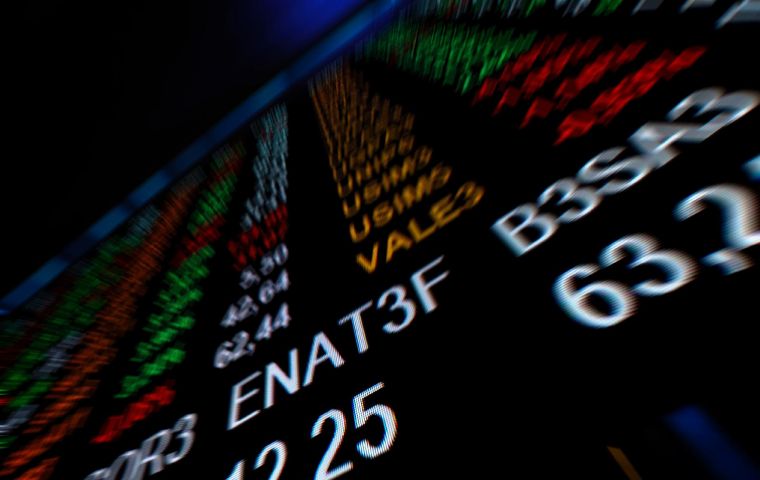MercoPress. South Atlantic News Agency
Brazil's GDP on track to better results than expected
 General Silva e Luna's appointment as CEO of Petrobras buffered a Sao Paulo stock exchange plunge.
General Silva e Luna's appointment as CEO of Petrobras buffered a Sao Paulo stock exchange plunge. Brazil's Economic Activity Index (IBC-Br), released by the Central Bank and believed to be an omen of the country's Gross Domestic Product (GDP) rose 1.70% in February 2021, against January's figures, it was announced Monday.
The new data show a positive variation of 0.98% year to year, against the -0.4% analysts had envisioned. The official forecast of the Central Bank on GDP expansion for 2021 is 3.6%.
But the projected inflation for this year remained unchanged at 4.9%, still above the central bank's target of 3.75%, which is also the case for the 2022 projections, as the weekly Focus report set it at 3.6% against the Central Bank's goal of 3.5%.
Central Bank CEO Roberto Campos Neto last week favoured raising interest rates aggressively at the beginning of a cycle of monetary tightening, to avoid raising rates too much at the end of the curve and keeping interest rates contained.
”There is always the risk that short-term inflation will begin to contaminate the final leg of the curve and that is why we have decided to move (raise the rate) earlier than the market expected. The faster we act, the more efficient we shall be,” he said.
Meanwhile, the country's leading Sao Paulo stock exchange closed on a downward path which could have been deeper had it not been for the appointment of Petrobras' new CEO, who seems to have injected some confidence into the company's image, climbing 6%.
General Joaquim Silva e Luna took office as new Petrobras CEO in lieu of Roberto Castello Branco. The military officer, endorsed directly by President Jair Bolsonaro, said he will seek to reduce the volatility of fuel prices without breaching the import parity.
Brazil's currency, the Real, went up 0.57% against the US dollar, closing at 1 US$ = 5.5538 R$.




Top Comments
Disclaimer & comment rulesCommenting for this story is now closed.
If you have a Facebook account, become a fan and comment on our Facebook Page!